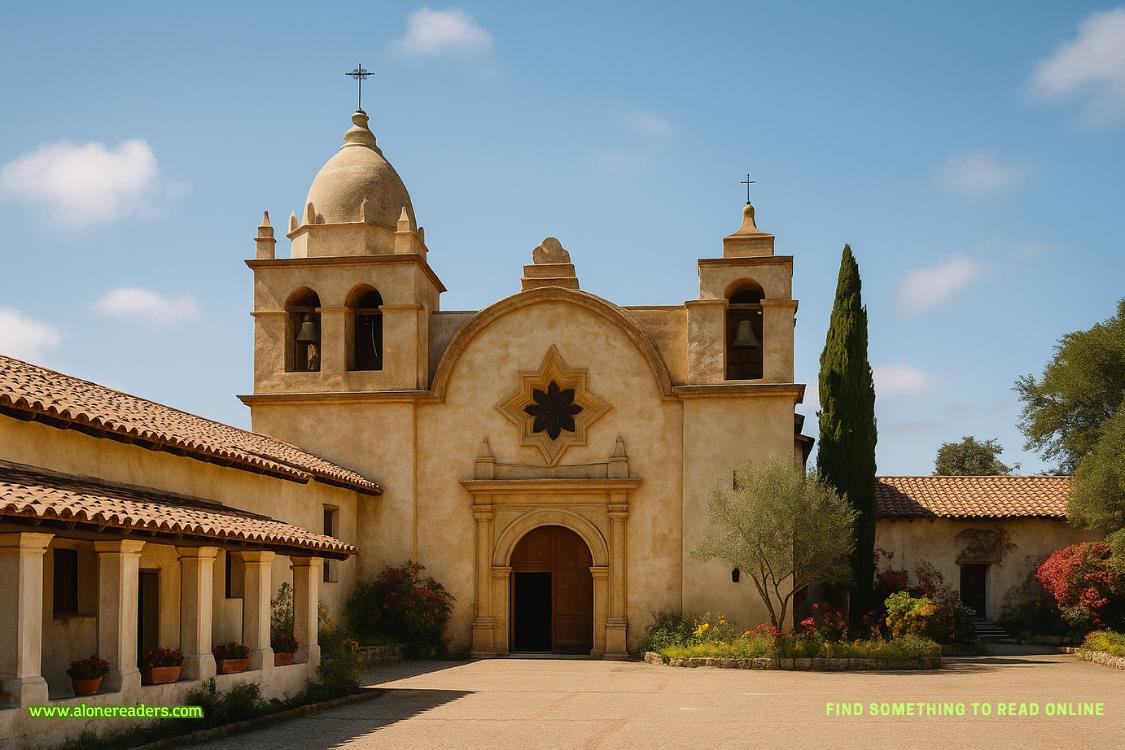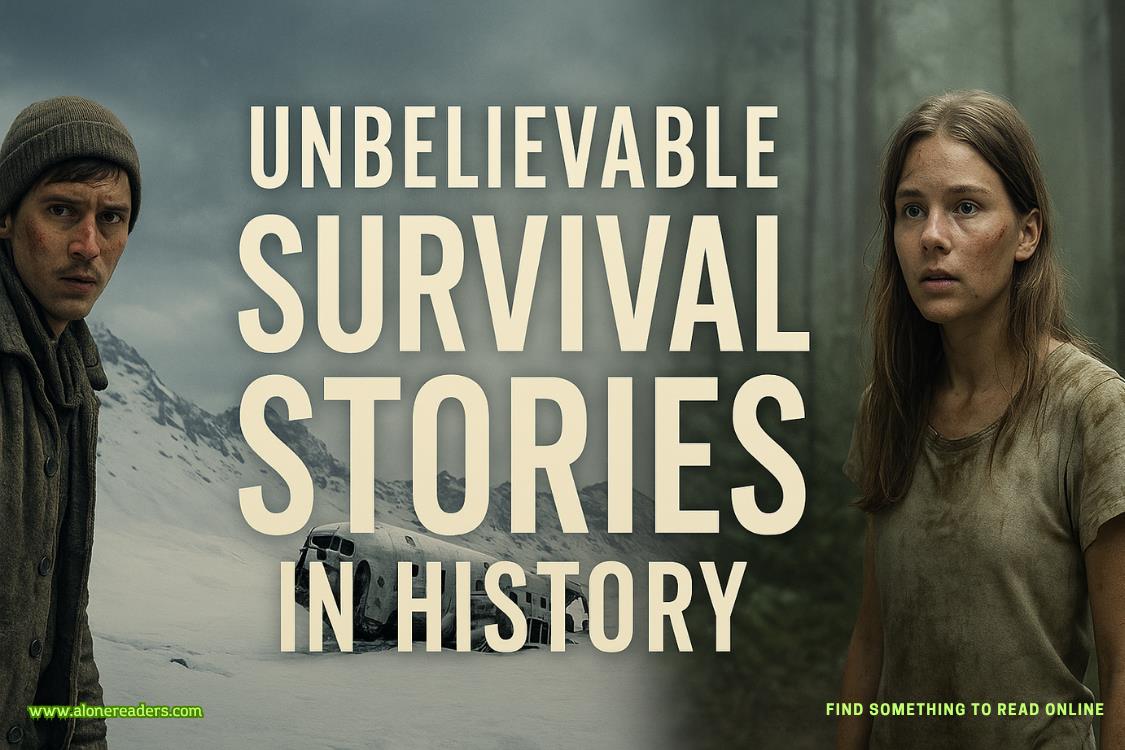Page 162 of A Queen This Fierce and Deadly
“How does the tunnel work anyway?” Herne asked.
“When, when Prisca used it to visit the elders…one minute she was there, and the next she wasn’t,” I said. “Later, I asked her what happened, and she said she was just dropped into a long tunnel. I think perhaps the island can sense the hybrids—and their intentions.”
Tibris nodded. “I’ve seen it myself. Once they get to the correct spot on the peninsula, they don’t return.”
“Our kingdom has magic of its own,” Telean said. “And the elders will be in the tunnel, ensuring our people are safely brought to Lyrinore.”
Demos got to his feet. “The first thing the Eprothanswill do is block off access to that spot. And when they do, we’ll have hundreds—if not thousands—of hybrids to protect. Is there anywhere for them to hide?”
Tibris cleared his throat. “There are several caves on the other side of the mountains. We could transport the sick, young, and injured into those caves.”
Stillcrest frowned. “They’ll still be trapped until we can clear a way to the tunnel.”
“But at least they won’t be waiting within the pass,” Demos said, walking back over to us. “The pass is too narrow for our soldiers to attempt to move around them, and if the Eprothans make it past our soldiers, it will be a slaughter within the pass.”
“When,” Stillcrest said. “You meanwhenthe Eprothans make it past our soldiers.”
I clenched my teeth so they wouldn’t chatter.
Demos met her eyes. “Yes. When. We will hold the line here to give our people as much time as possible to get through the pass. When there is no other option, we will retreat.” He glanced at Herne. “And your people will set as many traps as possible within the pass for the soldiers who follow. Traps that we can finish putting into place within seconds.”
Herne’s eyes lit up.
“Tomorrow, we send all remaining hybrids into the pass. Those who can’t walk will be carried by our soldiers. The rest of us will spend our day preparing this camp for a siege.”
“And then?” I asked.
“And then we hope reinforcements come. From somewhere.”
28
Prisca
The sudden storm had brought three days of pounding rain, the briny scent of the ocean overpowered by the unexpected, unyielding downpour.
To our right, the endless expanse of the sea stretched toward the horizon, its surface tumultuous under the gray sky as agitated, frothy waves crashed against the shore.
On our left, the foothills of the Normathe Mountains loomed as shadowy silhouettes, their verdant blanket of trees and shrubs obscured by rainfall. Occasionally, the land rose sharply, giving way to rocky outcrops that jutted out like the spines of an ancient beast. The rocky outcrops wept rivulets, and the path beneath our feet became a laborious slog through mud and puddles. The rhythmic march of our soldiers was replaced by splashes and curses as we all slipped and tripped.
The air was heavy with moisture, each breath I took laden with dampness that clung to my skin. The rain soaked through cloaks and uniforms, the chill seeping into our bones.
Would Daharak’s fleet make it through this storm? Or would we be on our own when we finally reached the mouth of the Asric Pass?
As dusk melded into the darkness of night, we began the miserable task of setting up camp in the relentless downpour. The sodden ground became a sea of mud that threatened to suck down tents. Each peg hammered into the earth ended up swimming in a shallow puddle. Several soldiers gaped at the sight of me attempting to set up my own tent while Lorian met with Galon. When Marth took over, I didn’t protest.
Two days later, the rain still showed no sign of abating. At night, it flooded tents, despite our best efforts to line them with cloaks and blankets. Galon and a group of twenty or so hybrids with power similar to his removed as much water as possible. But that water was quickly replaced as the deluge continued.
Visibility was reduced to mere shadows in the mist, the foothills half hidden in dense fog. Those with horses were forced to lead them through treacherous rivers of mud, which soon became torrents of water cascading into dangerous streams of fastmoving water and debris. Rockslides and mudslides were a constant threat, the rain loosening the earth and making our path perilous.
Galon and the others continued directing the water as much as possible. But they quickly burned through their power, deep lines of exhaustion on their faces.
Morale plummeted. Faces that just days ago had been lit with determination were now marked by misery. Even the simplest tasks became arduous—those with a connection to fire could light them for cooking, but the wood was soon soaked through, the unrelenting rain smothering any flames. Meals were eaten cold, whilewalking, unaccompanied by the usual banter.
Communication was reduced to hand signals and shouted commands. Lorian had broken the army into sections, giving each a trowth stone for communication. Those marching near the back bore the worst of the weather, the thousands of boots that came before them stirring the mud into deep, treacherous puddles.
This amount of rain, this close to the mountains, at this time of the year…
Every soldier marching with us was aware that it was unusual.
- Pregnant by the CEO by HelenKay Dimon
- Bound By Her Mafia Bosses by K.L. Ramsey
- Ruthless Kings by Dani Rene
- 1 Last Shot by Nikki Castle
- Doctor's Surprise Bride by Cassi Hart
- Three Hot Stepbrothers and a Jinxed Girl by Chloe Kent
- Ice & Steel by Raya Morris Edwards
- Baring it All (Men in Charge) by Tory Baker
- Three Sweet Nothings (The Blindfold Club) by Nikki Sloane
- One Night Only by Tara Pammi
- Sofa King Wanted by Alexa Riley
- Beloved Beauty by Georgia Cates
- Gunner by Winter Sloane
- Sofa King Safe by Alexa Riley
- Eat Slay Love by Kenya Wright
- Forever C*cky by Skye Turner







